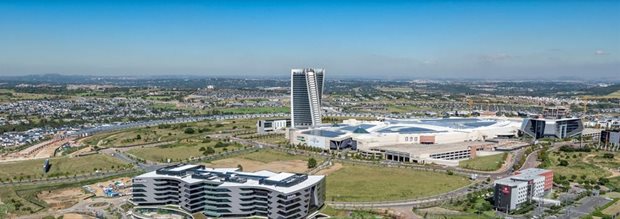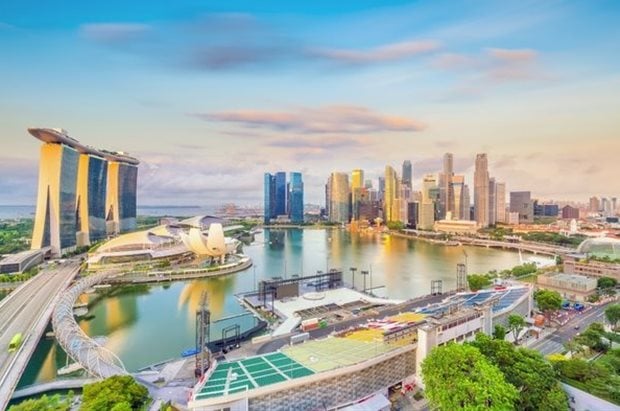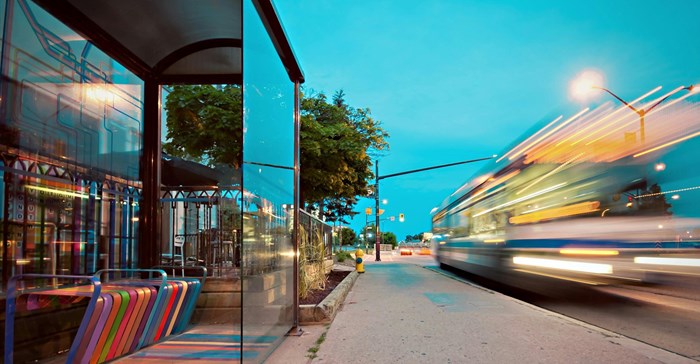Clarens, a picturesque arts town nestled in the Free State, has been classified as South Africa's inaugural "smart town”, which will support its existing smart-city initiatives such as the installation of smart meters, electric vehicle charging stations, and a variety of small-scale embedded generators (SSEGs).
The key to Clarens achieving this milestone: a stable supply of electricity, one that is being made possible through a pilot load-management project in partnership with Eskom, and backed by a mobile application released by Augos.
This sees the residents of Clarens managing their own electricity usage through load curtailment.
It involves them deliberately reducing electricity consumption - by switching off non-essential appliances during specified periods.
Unlike load shedding - which involves power cuts by a power utility to manage the balance between supply and demand to prevent grid failure - load curtailment involves buy-in from the community which deliberately reduces its consumption as a means to steady the overall electricity supply.
The Augos app signals when residents need to reduce their electricity consumption by 10 to 20%, depending on which stage of curtailment the town is experiencing.
Real-time monitoring
Director of Augos, Gert Kruger, confirms that a meter has been installed at Clarens' main point of supply, which sends real-time statistics of the town’s current demand every minute, prompting further reduction if required.
Within this context, Eskom gives notice to a nominated group co-ordinator who is responsible for implementing sustained load curtailment. If non-compliance occurs three times, normal load shedding is reinstated.
The insights gained from this pilot project will be invaluable, particularly for informing the future implementation of smart cities throughout South Africa.
South Africa's smart city plans
In his 2019 and 2020 State of the Nation Address President Cyril Ramaphosa announced plans to introduce three new smart cities in South Africa, namely:
- Nkosi City, near Kruger National Park, which aims to create jobs through farming projects linked to housing. It will use solar and biomass energy.
- The African Coastal Smart City in the Eastern Cape, which is still being planned but aims to boost investment in an underdeveloped area, and
- Lanseria Smart City in Gauteng, which aims to use its airport to fuel growth. It will use rainwater harvesting and solar power, with a focus on pedestrian-friendly urban design.
Progress on these smart cities has purportedly stalled.
Plans for the Lanseria Smart City first surfaced in 2007, with construction expected to take 25 years once developers broke ground in the area. However, four years after Ramaphosa’s address and 17 years after the plans first surfaced, the development remains unfinished.
Vaal River Smart City
Smart Cities businessman MK Malefane, at an interview conducted at the second SA Investment Conference in 2019, spoke of the development of the Vaal River Smart City, a multi-billion investment in the Vaal triangle earmarked as Gauteng's Special Economic Zone (SEZ), plans for which are gaining traction.
In October 2021, in a report Gauteng Premier David Makhura, who tendered his resignation as Premier of Gauteng in October 2022 noted that the Vaal River Smart City would focus on emerging technologies, including:
- A new logistics sector;
- A hub of the cannabis industry; and
- A hub for the hydrogen economy in the Gauteng region.
In June last year, the US group Citi-Bank pledged a substantial investment of R1.4bn into the SEZ. Peter Taylor, the leader of Citi South Africa, said the US lender’s offer includes a seven-year loan facility to a special purpose vehicle.
This vehicle will directly invest in infrastructure for Vaal River Smart City, which Malefane said would include major research and development campuses for pharmaceutical, medicinal and health products and hospitals.
Sandton's smart city
While Clarens has set a precedent as the first government-run municipality to be dubbed South Africa's first smart town, some argue that this title should actually be attributed to Waterfall City in Sandton.
Waterfall City in Gauteng, is South Africa's first privately-run municipality, a $5.8bn mixed-use complex that has been touted as "the most ambitious city building project ever undertaken in Africa, let alone South Africa".

Source: Waterfall City.
Commended as a world-class smart city on its website Waterfall City is a "master-planned holistically conceived privately administered city" - [a] "new satellite city, which sprang from legal loopholes that provide immunity from municipal control".
According to The New Tourist's Youtube channel, "Waterfall City's real estate developers have effectively replaced public authority with private management and control by handling all of the traditional tasks of a municipal administration."
"The urban enclave is created totally from scratch on 2200ha of unoccupied ground," it says. "This massive city-building project in Waterfall City blends a hyper-modernist emphasis on "smart" growth, cutting-edge technologies, and cutting-edge infrastructure with a New Urbanist emphasis on mixed-use facilities, a human-scale built environment, and pedestrian-friendly districts."
It explains that "Waterfall City exemplifies a unique type of privatised urbanism as it is built on privately owned land, managed by a single corporate enterprise and financed by a group of large scale real-estate developers".
The land and property at the entire site is owned by the Waterfall Islamic Institute Trust.
A model for the future
More recenty Waterfall Management Company (which recently rebranded to Waterfall City Management Company) received the coveted Best International Mixed-use Architecture 2023-2024 award for Waterfall City at the annual International Property Awards ceremony held at the iconic Savoy Hotel in London.
This momentum could see The Waterfall City potentially catapult South Africa in alignment with some of the world's most efficient smart cities in the world.
Topping most lists when it comes to smart cities is Singapore. In 2019, the World Economic Forum stated that Singapore was named the world’s “smartest city”, based on the inaugural IMD Smart City Index.

Source: SmartCitiesWorld.
Since launching its Smart Nation initiative in 2014, Singapore has introduced a wide range of smart technologies in both its public and private sectors.
Its best-practice advice to South Africa ripe with smart-city ambitions: start small, take a ‘bite-sized’ approach and build on from there. So says Rahul Ghosh, director of Enterprise Singapore for Middle East and Africa.
“South Africa has on its plans some smart-city developments and we've been in discussions with the different parties related to that. It doesn’t need to start at the city level; it can start with a smart building, at an estate level or just a small municipality level," he said.
And South African has done just that, with its load-curtailment initiative in Clarens backing its established smart-city programmes.
Eskom has reported its successful implementation, and that residents have noted that they've effectively reduced and managed their electricity usage. This sets the framework for the implementation of similar initiatives in other regions across the country.












































